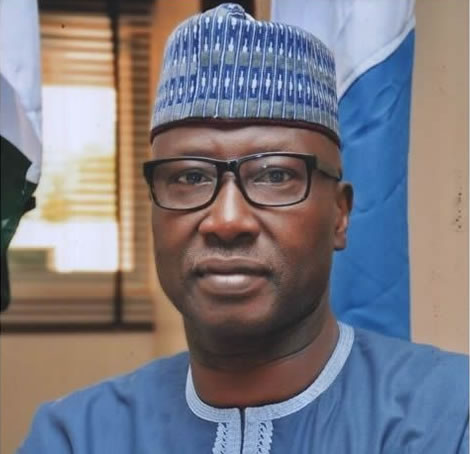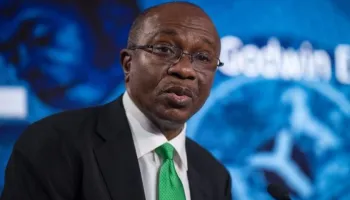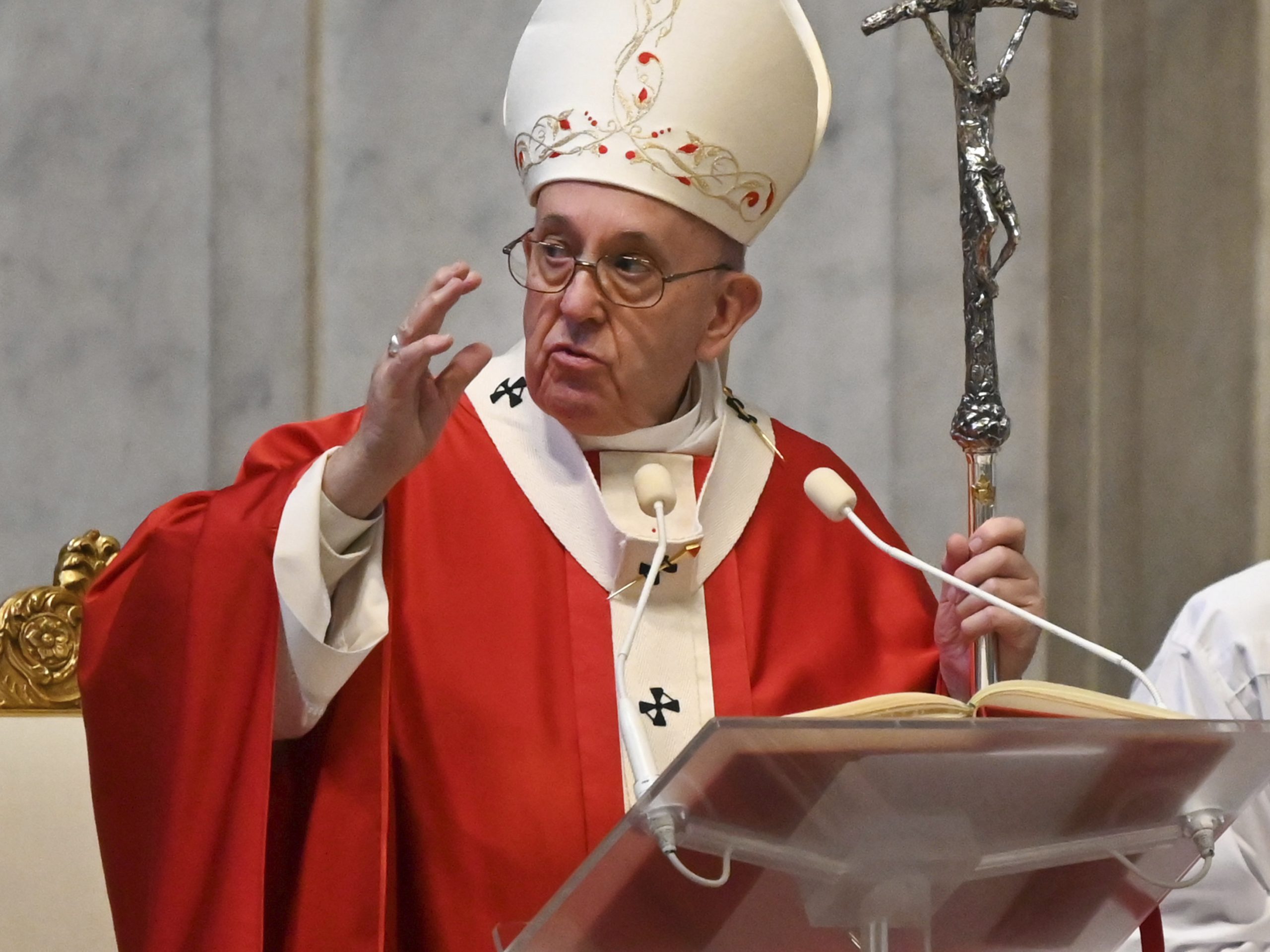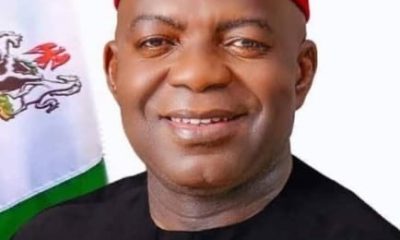COVER
Buhari Signs N21.83trn 2023 Budget, Assures Adequate Provisions for General Elections
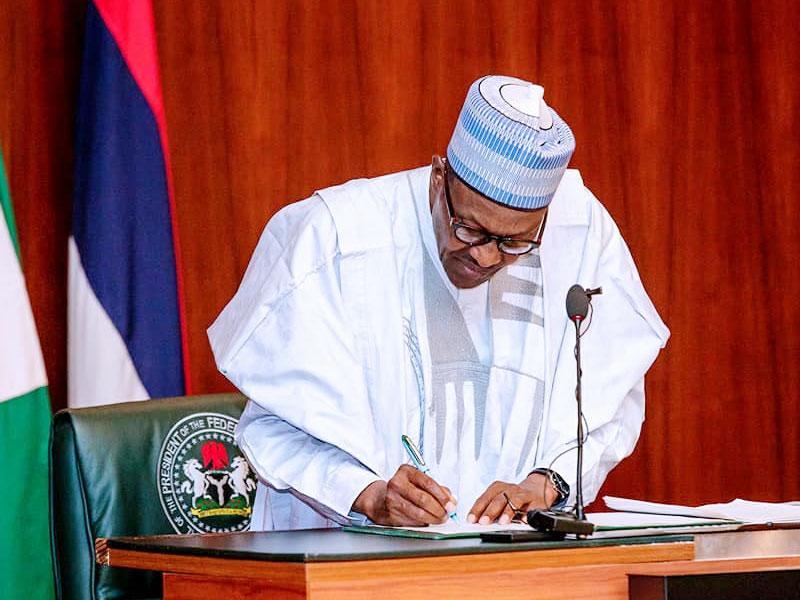
By Mathew Dadiya, Abuja
President Muhammadu Buhari on Tuesday in Abuja signed the 2023 Budget of N21.83 trillion along with the 2022 Supplementary Appropriation Bill into law.
Speaking at the signing of the eighth and final annual budget of this Administration, the President said the aggregate expenditures of N21.
83 trillion, is an increase of N1. 32 trillion over the initial Executive Proposal for a total expenditure of N20. 51 trillion.The President explained that the 2022 Supplementary Appropriation Act would enable the administration to respond to the havoc caused by the recent nationwide floods on infrastructure and agriculture sectors.
As is customary, he said the Minister of Finance, Budget and National Planning will subsequently provide more details of the approved budget and the supporting 2022 Finance Act.
”We have examined the changes made by the National Assembly to the 2023 Executive Budget proposal.
”The amended fiscal framework for 2023 as approved by the National Assembly shows additional revenues of N765.79 billion, and an unfunded deficit of N553.46 billion.
”It is clear that the National Assembly and the executive need to capture some of the proposed additional revenue sources in the fiscal framework. This must be rectified.
”I have also noted that the National Assembly introduced new projects into the 2023 budget proposal for which it has appropriated N770.72 billion. The National Assembly also increased the provisions made by Ministries, Departments and Agencies (MDAs) by N58.55 billion.”
Buhari said his decision to sign the 2023 Appropriation Bill into law as passed by the National Assembly was to enable its implementation commence without delay, considering the imminent transition process to another democratically elected government.
He, however, directed the Minister of Finance, Budget and National Planning to engage with the Legislature to revisit some of the changes made to the Executive budget proposal, expressing the hope that the National Assembly will cooperate with the Executive arm of Government in this regard.
He urged the National Assembly to reconsider its position on his proposal to securitize the Federal Government’s outstanding Ways and Means balance at the Central Bank of Nigeria (CBN).
”As I stated, the balance has accumulated over several years and represents funding provided by the CBN as lender of last resort to the government to enable it to meet obligations to lenders, as well as cover budgetary shortfalls in projected revenues and/or borrowings.
”I have no intention to fetter the right of the National Assembly to interrogate the composition of this balance, which can still be done even after granting the requested approval.
”Failure to grant the securitization approval will however cost the government about N1.8 trillion in additional interest in 2023 given the differential between the applicable interest rates which is currently MPR plus 3% and the negotiated interest rate of 9% and a 40year repayment period on the securitised debt of the Ways and Means.”
To ensure more effective implementation of the 2022 capital Budget, President Buhari thanked the National Assembly for approving his request for an extension of its validity date to 31st March, 2023.
The President directed the Ministry of Finance, Budget and National Planning to work towards early release of the 2023 capital votes to enable Ministries, Departments and Agencies commence the implementation of their capital projects in good time to support efforts to deliver key projects and public services as well as improve the living conditions of Nigerians.
Reiterating that the 2023 Budget was developed to promote fiscal sustainability, macroeconomic stability and ensure smooth transition to the incoming Administration, the President said it was also designed to promote social inclusion and strengthen the resilience of the economy.
He pledged that adequate provisions have been made in the Budget for the successful conduct of the forthcoming general elections and the transition programme.
On achieving revenue targets for the budget, the President directed MDAs and Government Owned Enterprises (GOEs) to intensify their revenue mobilization efforts, including ensuring that all taxable organizations and individuals pay taxes due.
To achieve the laudable objectives of the 2023 Budget, the President said relevant Agencies must sustain current efforts towards the realization of crude oil production and export targets.
”To augment available fiscal resources, MDAs are to accelerate the implementation of Public Private Partnership initiatives, especially those designed to fast-track the pace of our infrastructural development.
”This, being a deficit budget, the associated Borrowing Plan will be forwarded to the National Assembly shortly.
”I count on the cooperation of the National Assembly for a speedy consideration and approval of the Plan.”
On the Finance Bill 2022, the President expressed regret that its review as passed by the National Assembly is yet to be finalized.
”This is because some of the changes made by the National Assembly need to be reviewed by the relevant agencies of government. I urge that this should be done speedily to enable me to assent into law,” he said.
Those who witnessed the signing of the budget include Senate President Ahmad Lawan and the Speaker of the House of Representatives, Femi Gbajabiamila.
The President thanked the Senate President, the Speaker of the House of Representatives, and all the distinguished and honourable leaders and members of the National Assembly for the expeditious consideration and passage of the Appropriation Bill.
He also recognised the roles played by the Ministers of Finance, Budget and National Planning, the Budget Office of the Federation, the Senior Special Assistants to the President (Senate and House of Representatives), the Office of the Chief of Staff, as well as all who worked tirelessly and sacrificed so much towards producing the 2023 Appropriation Act.
”As I mentioned during the presentation of the 2023 Appropriation Bill, early passage of the budget proposal is critical to ensure effective delivery of our legacy projects, a smooth transition programme and effective take-off of the incoming Administration.
”I appreciate the firm commitment of the 9th National Assembly to the restoration of a predictable January to December fiscal year, as well as the mutual understanding, collaboration and engagements between officials of the Executive and the Legislative arms of government.
”These have made the quick consideration and passage of our Fiscal bills possible over the last four years.”
The President expressed the belief that the next Administration would sustain the early presentation of the annual appropriation bill to the National Assembly to ensure its passage before the beginning of the fiscal year.
”I firmly believe the next Administration will also sustain the current public financial management reform efforts, further improve the budgeting process, and particularly maintain the tradition of supporting its Appropriation Bills with Finance Bills designed to facilitate their implementation.
”To sustain and institutionalize the gains of the reforms, we must expedite action and conclude work on the Organic Budget Law for it to become operational before the end of this Administration.”
Acknowledging that ‘‘these are challenging times worldwide,’’ the President concluded his speech at the ceremony by expressing deep appreciation to Almighty God for His Grace, while commending the continuing resilience, understanding and sacrifice of Nigerians in the face of current economic challenges.
”As this Administration draws to a close, we will accelerate the implementation of critical measures aimed at further improving the Nigerian business environment, enhancing the welfare of our people and ensuring sustainable economic growth over the medium- to long-term,” he said.
Meanwhile the Senate President, Ahmad Lawan has assured that the National Assembly will work to ensure increase funds for the government and reduce the rate of deficit in the budget.
“But that is not to say that, we should raise taxes that will be out of the roof to cause problems for our citizens. But I believe that as a National Assembly, in the next five months, we must be looking at increasing the funds available to the government and also ensuring that the deficit budget is minimized in the next assembly by the grace of God,” he said.
Also, the Speaker of the House of Representatives, Femi Gbajabiamila denied any act of padding or jerking the budget explaining that the lawmakers have done very well in meeting their constitutional mandate, as they don’t want to be seen as a “rubber stamp to the executive.”
“If you understand constitutional democracy, there are different layers of government and it’s called separation of powers. Ours is for us to receive proposals and that’s why they’re called proposals anywhere in the world.
“The National Assembly has done very well in meeting its constitutional mandate. It takes all arms of government to be on board to give a true working document for the country. The executive did everything they could; and we have even a wider view, a bird’s eye view of what’s going on in all the agencies. And we have also complemented what the executive has done. It’s all for the good of the country and that’s what we’ve done.”
It is now for the National Assembly or the legislature to collate all those proposals and look at what’s on the ground in the various constituencies. During budget defense, we have ministries, departments, agencies that come to talk to us and we look at the reality on the ground and what they have before them. And whether or not they can actually, execute their mandate as per their ministries and departments.
“It now behooves the National Assembly, where it dims to adjust figures, either downwards or upwards. And that’s exactly what we have done. The problem with the National Assembly is that you can’t win to lose. If you return the budget the exact way it is you’re called a rubber stamp. If you do what you’re supposed to do and adjust figures for the good of the country. You call it jacking up or inflation or padding,” Speaker said.
COVER
Agama Tasks African Capital Markets on Climate Adaptation Gap Finance

By Tony Obiechina, Abuja
The Securities and Exchange Commission (SEC), Nigeria has stressed the need for the mobilisation of capital markets to bridge the colossal financing gap for climate adaptation in Africa.The Director-General of SEC, Dr Emomotimi Agama said this while speaking on The Role of Capital Markets in Closing Financing Gaps for Climate Adaptation presented at the African Development Bank (AfDB) meeting.
He urged project developers and private sector actors to present bankable, pipeline-ready projects with robust environmental and social metrics in a bid to closing financing gaps for climate adaptation. Agama said that African capital markets could be achieved through market integration, aligning standards and adopting the International Sustainability Standards Board (ISSB).”Closing the climate adaptation financing gap in Africa is not a distant aspiration but a development imperative, and one that demands our collective ingenuity and capital””By integrating our markets, aligning standards, adopting the ISSB framework, and mobilising institutional capital across borders, we can build a climate-resilient future for all Africans,” he said.He noted that Africa, which contributes less than four per cent of global greenhouse gas emissions, bears over 25 per cent of climate-related losses.”Experts estimate our continent faces an annual climate adaptation financing shortfall of up to $100 billion by 2030.”The 2022 Africa Economic Outlook by the AfDB estimated that the continent needs around $500 billion of climate finance by 2030.”Africa will also need to invest more than three trillion dollars in mitigation and adaptation by 2030 in order to implement its Nationally Determined Contributions.”These figures are more than statistics, they translate into lost livelihoods in the Sahel, vanishing fish stocks in the Gulf of Guinea, and more frequent flooding in Lagos and Nairobi,” he said.According to him, these figures reflect a deepening divide between vulnerability and resilience.”The stark reality is undeniable. Africa, contributing minimally to historical emissions, faces severe impacts of a changing climate which includes devastating droughts threatening food security, rising sea levels, engulfing coastlines, and intensifying storms disrupting lives and economies,” he said.Agama added that the 2023 United Nations Environment Programme Adaptation Gap Report said Africa needs between $212 and $387 billion annually for developing countries’ adaptation by 2030.”Meanwhile, our current flows and commitments are a mere fraction of this amount. For Africa specifically, the gap is immense, estimated to be up to 50 times current funding levels,” he saidAgama said in 2017, Nigeria launched its sovereign green bond, the first in sub-Saharan Africa. Within months, it was oversubscribed by 2.5 times, driven by Nigerian pension funds and diaspora investors seeking both yield and impact.This he said demonstrated that local institutional capital can be mobilised for climate projects when the right instruments and confidence-building frameworks are in place.The SEC Boss posited that the ISSB Standards serve as the game-changer as the experiences in Nigeria for example, are not only innovating climate finance products but also shaping global standards for sustainability disclosures.According to him, “The Securities and Exchange Commission (SEC) Nigeria represents the country on the International Sustainability Standards Board’s Adoption Readiness Working Group (ARWG), which was tasked with implementing the new IFRS S1 & S2 Sustainability Disclosure Standards.“The ARWG finalised its Roadmap for Adoption, publicly exposed by the Financial Reporting Council of Nigeria and SEC Nigeria between February 3 and March 14, 2024. Feedback was rigorously reviewed and integrated. The roadmap outlines early Adoption, Voluntary Adoption (January 1, 2024 through December 31, 2026) and Mandatory Adoption (beginning January 1, 2027) All entities, excluding government bodies, must comply with staggered timelines.“This leadership positions Nigeria at the forefront of transparent, comparable, and decision-useful sustainability reporting across Africa.Agama noted that adaptation finance was critically underserved due to three major reasons namely perception problem, data and measurement gaps and risk aversion.”This is where our capital markets must step in, and where the ISSB becomes vital,” he said.To scale adaptation finance, the SEC DG urged deeper regional market integration, harmonised ESG standards, and deployment of tools like credit enhancements to de-risk early-stage climate investments.“Closing the climate adaptation financing gap in Africa is not a distant aspiration but a development imperative, and one that demands our collective ingenuity and capital. The recent journey in Nigeria proves that it can be done. By integrating our markets, aligning standards, adopting the ISSB framework, and mobilising institutional capital across borders, we can build a climate-resilient future for all Africans.“Let us seize this moment, as regulators, investors, governments, standard-setters, and development partners, to deepen African capital markets and finance the resilience of our continent and our people” he added.COVER
Dangote Refinery Symbolises Hope for Africa, Says ECOWAS President

By Andrew Oota, Abuja
The Economic Community of West African States (ECOWAS) has said the Dangote Petroleum Refinery is more than just a feat of engineering but also symbolizes hope for Africa.President of the ECOWAS Commission, Dr Omar Alieu Touray, Stated this during a visit to the state-of-the-art 650,000 barrels-per-day facility and declared the refinery as a beacon of hope for Africa’s future.
Touray said the facility was a clear demonstration of what the private sector can achieve in the drive for regional industrialisation. The delegation also included ECOWAS Commissioner for Infrastructure, Energy and Digitalisation, Sediko Douka; Commissioner of Internal Services, Prof. Nazifi Abdullahi Darma; Director of Private Sector/SME, Dr Tony Luka Elumelu; and Dr Touray’s Chief of Staff, Hon Abdou Kolley, among others. “What I have seen today gives me a lot of hope, and everybody who doesn’t believe in Africa should come here. Visiting here will give you more hope because this is exactly what our continent should focus on.”“We have seen something I couldn’t have imagined, and really the capacity in all areas is impressive. We congratulate Alhaji Dangote for this trust in Africa because I think you do this only when you have the trust, and he has a vision for Africa, and this is what we should all work to encourage.”Dr Touray noted that the refinery, which produces fuel to Euro V standard, is critical for enabling the ECOWAS region to meet its 50ppm sulphur limit for petroleum products—a standard many imported fuels fail to meet, posing health and environmental risks across member states.“We are still importing products below our standard when a regional company such as Dangote can meet and exceed these requirements,” he said. “The private sector must take the lead in ECOWAS industrialisation.”The ECOWAS Commission President used the visit to call for stronger collaboration between governments and the private sector, stressing that policy decisions must reflect the real challenges and opportunities experienced by African industrialists.“We believe our visit also serves as an opportunity to hear directly from Mr Dangote, about what the private sector expects from the ECOWAS community,” Dr Touray remarked, noting that as ECOWAS celebrates its 50th anniversary, the community is more committed than ever to bringing the private sector to the table—to listen to their perspectives and to understand how best to create an environment that works for them.“We cannot continue to make decisions on behalf of the private sector from a distance. Visits like this provide us with first-hand experience and direct insight into the challenges they face—challenges that authorities and government officials must work to address,” he added.Dr Touray said the time is ripe for the region to pursue an industrial strategy capable of addressing deep-rooted challenges such as youth unemployment, poverty, and insecurity.“We often speak about poverty eradication and youth employment, but the government alone may not have the capacity to achieve these goals. Only the private sector can deliver the scale of impact required, and it is essential that we listen to them, understand how these objectives can be met, and identify the bottlenecks they face so that they can be effectively addressed. This is the only realistic path to creating jobs and fostering genuine prosperity across our economies.”COVER
Benue Catholic Priests Raise the Alarm, Say Herdsmen Kill 50, Shut 15 Churches

By Attah Ede, Makudi
The Nigerian Catholic Diocesan Priests Association (NCDPA), Makurdi Diocese has raised the alarm over continued deadly attacks by armed herdsmen in Benue State, revealing that over 50 people have been killed and 15 Catholic parishes have been forced to shut down in just one month.
At a press conference yesterday, the Chairman of NCDPA in Makurdi Diocese, Rev Fr. Joseph Beba, condemned the wave of violence, describing it as a calculated and coordinated effort to wipe out Tiv communities. He accused security forces, particularly the military stationed in the affected areas, of complicity and inaction.“Among those affected are Catholic priests, and this has led to the closure of 15 parishes in Makurdi Diocese alone,” Fr. Beba said, decrying what he described as the military’s silence and passivity while communities were being attacked.The priests detailed a series of recent attacks, including the shooting of Rev. Fr. Solomon Atongo, the priest in charge of St. John’s Quasi Parish, Jimba. Fr. Atongo was reportedly shot just 500 meters from a military checkpoint at Tse Orbiam, with no response from the stationed personnel. The community itself was later attacked.Other communities listed as victims of the violence include; Tse Orbiam, Ahume, Jimba, Nagi-Camp, Aondoana, Yelewata and Abegana — all located within the Makurdi Diocese.According to the priests, these assaults have resulted in numerous deaths, including women, children, and even a pregnant woman.“These acts are inhumane, barbaric, and a gross violation of the sanctity and dignity of human life,” the priests stated. They further suggested that the attacks may be linked to Bishop Wilfred Anagbe’s recent testimonies in the U.S. and Europe about the persecution of Christians in Nigeria.“These attacks are a direct assault on the Bishop of Makurdi Diocese and the Catholic Church he represents. They appear coordinated and retaliatory,” they said, adding that the bishop’s home village of Aondoana was also attacked on May 25, with clergy and nuns fleeing into the bush for safety.In yet another attack on May 26, terrorists invaded Nagi-Camp, only five kilometers from a Nigerian Army base in Agagbe, and still, there was no military intervention. The following night, Yelewata community in Guma Local Government Area was attacked, with an entire family wiped out and Revd. Fr. Jonathan Ukuma narrowly escapes assassination.The priests lamented the growing sense of abandonment, noting that neither the federal nor state government had visited the victims or shown solidarity, even as communities were displaced and religious leaders attacked.“We are not sure whose side the military is on. Their behavior raises serious suspicions of complicity,” they said, citing the increasingly unsafe Naka-Makurdi and Taraku-Naka roads as further proof of the deteriorating security situation.They issued a direct call to Governor Hyacinth Alia, urging him to act decisively against what they called “ethnic cleansing” of the Tiv people. They also demanded that President Bola Tinubu declare full-scale war on the terrorist elements identified by Governor Alia as foreign invaders.“Failure to act decisively will be seen as indifference or complicity. To be silent is to die twice,” they warned.The priests also called for immediate government compensation for victims and the return of displaced persons to their ancestral lands, insisting that the government’s constitutional duty is to protect the lives and dignity of its citizens.Reaffirming their commitment to the gospel, the clergy said they would not be silenced and encouraged Nigerian youths to be prepared to defend their faith, farmlands, and communities within the bounds of the law.“The right to self-defence is inalienable for all citizens,” they declared.Kidnappers Intercept Another Benue Links Bus, Abduct 10 PassengersExactly one month after gunmen suspected to be kidnappers hijacked a Benue Links bus at Ikobi in Otukpo local government area, killed the driver and kidnapped 14 passengers on board, gunmen have again hijacked another Benue link bus and kidnapped 10 passengers including the driver.The latest incident happened along the Owukpa–Orokam road in Ogbadibo Local Government Area of Benue State.A resident in Owukpa community identified as Grace Ogwuche who spoke to DAILY ASSET on phone in Makurdi, said 9 passengers, including the driver of the vehicle, were kidnapped, while one female passenger managed to escape.According to her, the incident occurred at about 7PM on Saturday while the victims were returning from Orba market in Enugu to Owukpa community in Ogbadibo.She maintained that the gunmen ambushed the Benue Link and whisked away all the passengers, including some women who were still breastfeeding their children.”They shot the driver and one other person, causing the vehicle to lose control and veer off the road. The other passengers were later kidnapped.”I want to call on the Chairman of Ogbadibo Local Government Council to liaise with relevant security agencies to act fast to rescue the victims.“The area has long been a danger zone, and no serious security network is in place to stop or reduce these attacks,” he warned.One of the victims, who sustained severe gunshot wounds during the attack, was left behind as a result of excessive bleeding that could have compromised the abductors’ location.The victim is presently receiving treatment at the intensive care unit of St. Mary’s Hospital in Okpoga, Okpokwu local government area.When contacted, the Leader of the Owukpa vigilante group, Amos Agada, who confirmed the incident, said as of Sunday morning, June 1, the kidnappers had not contacted any of the victims’ families.According to him, the local security operatives were already making efforts to rescue the abducted passengers.Also, a community leader, Hon Adikwu Daniel, who raised the alarm in a statement, urged the Chairman of Ogbadibo Local Government Council and security agencies to act swiftly to rescue the victims and install a sustainable security presence along the dangerous route.“The area has long been a danger zone, and no serious security network is in place to stop or reduce these attacks,” he warned”, he said.When contacted the state commissioner for energy and transports, Barrister Omale Omale, said he was not aware of the development.”I kindly refer you to the general manager of Benue Link. He has the authority to speak on my behalf, although he is yet to bring the incident to my knowledge”, Omale said.However, the information officer of Benue Link Transport Company, Ehi Johnson, told DAILY ASSET that he can’t speak on the latest development.He promised to get across to journalists at the appropriate time.”Right now, I can’t speak on the matter yet. I will get back to you (journalists) after at the right time. But for now, give me little time.Meanwhile, Benue State Command Police Public Relations Officer (PPRO), Udeme Edet could not be reached, as she did not answer her phone when called.She also did not respond to a text message sent to her mobile phone at the time of filing this report.Over 30 Murder in Renewed Benue AttackAt least 30 people have been reportedly murdered in a renewed attack by suspected herdsmen on Edikwu Ankpali community in Apa Local Government Area of Benue State.DAILY ASSET gathered that the dreaded killer herdsmen invaded the community at about 6:30PM yesterday and started shooting sporadically, killing anyone on sight.A local source who confirmed the incident, said many residents were also taken away to unknown destination during the deadly assault.The local who identified himself as Owoicho Daniel said that the community was completely were sacked by the armed attackers.”As I speak with you, there is no single object in the community. It was an unprovoked attack. We were taking unaware. Some people went to evening service, while others at beer joint when they killers came.”It is an evening one can never imagine. Security personnel stationed at the area were overpowered as they look so helpless.Government must do something about these incessant killings and attacks. We have be living in fear for the past two months. The attack is still on going. About 30 people have been killed so far while several people have gone missing”, he said.Effort to get confirmation from the Benue State Police Command proved abortive as the Police Public Relations Officer (PPRO), Udeme Edet could not be reached, as she did not answer her phone when called.She also did not respond to a text message sent to her mobile phone at the time of filing this report.
